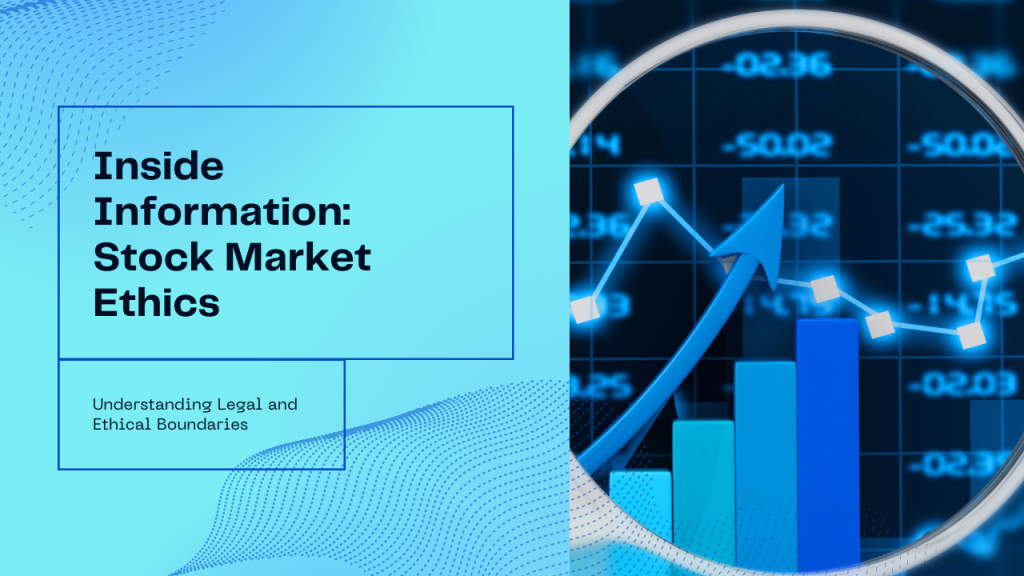The allure of inside information in the stock markets is undeniable, but it comes with a host of ethical and legal considerations. At its core, insider trading involves buying or selling securities based on material, non-public information. While this practice can yield substantial profits, it’s also fraught with risks, including hefty fines and even criminal prosecution.
For stock market experts, the line between legal research and insider trading can sometimes blur. While conducting thorough analysis and staying abreast of industry developments is par for the course in the investment world, accessing privileged information not available to the public can land individuals and firms in hot water.
In recent years, regulatory bodies have ramped up efforts to combat insider trading, employing sophisticated surveillance techniques and imposing harsh penalties on violators. Despite these measures, instances of insider trading continue to surface, highlighting the persistent challenge of enforcing ethical conduct in the financial sector.
The ethical dilemma of insider trading extends beyond legal considerations to encompass broader questions of fairness and integrity. In a market where information is power, the advantage gained by those with access to inside knowledge can come at the expense of less privileged investors. This imbalance undermines the fundamental principles of transparency and equal opportunity that underpin the functioning of financial markets.
Moreover, the fallout from insider trading can extend far beyond individual actors, tarnishing the reputation of entire firms and eroding public trust in the integrity of the market. As such, the ethical imperative to abstain from insider trading extends not only to legal compliance but also to a commitment to upholding the principles of fairness and accountability that are essential to the proper functioning of financial markets.
In conclusion, while the allure of inside information may be strong, the ethical and legal complexities surrounding insider trading cannot be ignored. As regulators continue to crack down on illicit activity and public scrutiny of the financial sector intensifies, investors and market participants must remain vigilant in their efforts to uphold the highest standards of integrity and transparency.


